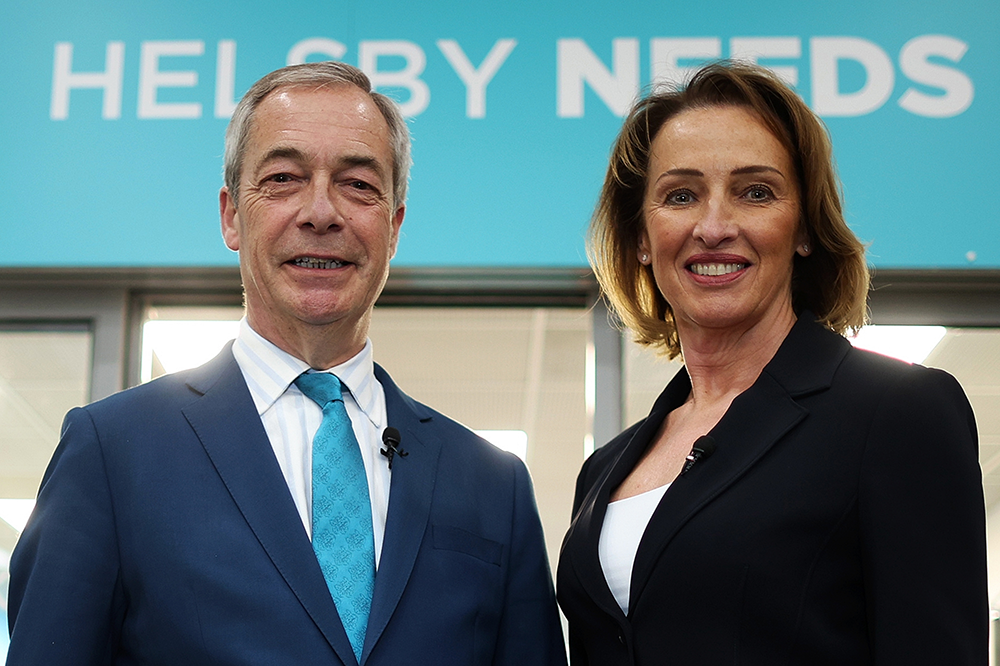Britain’s politics has been overrun with populist party leaders in recent years. Nigel Farage has referred to himself as the ‘father of populism’. Jeremy Corbyn’s ‘for the many, not the few’ rhetoric is typical of populists. The new Green party leader, Zack Polanski, was elected on a mandate to turn the Greens into an ‘eco-populist’ party. And now we have Andy Burnham. The Mayor of Manchester has desperately tried to curry favour with the popular left over the last decade. Does Britain really need another populist?
What sets Farage, Corbyn and Polanski apart from Burnham is that they each have a concrete political identity. Farage is clearly a right-wing nationalist; Corbyn identifies as a socialist; Polanski presents himself as a social justice campaigner. Burnham is less consistent. He has at different times identified with Blairite reformism, the soft left, and more recently Starmer – while courting Corbynite voters. He represents a different style of political populism, one driven by nothing more than pandering to the most basic left-wing impulses. Recall the pandemic, for example. In the beginning, Burnham advocated the strictest possible lockdowns. But as public opinion shifted and businesses began to feel the strain (i.e. when it became the acceptable left-wing opinion) he reinvented himself. He demanded a lower Covid tier for Greater Manchester, and called for more public money in support.
Even if Burnham is often inconsistent in his views, his opposition to the current leadership has gained him admirers. Polls of Labour party members put him above Starmer as their preferred choice for prime minister. All Burnham would need to strike is a parliamentary seat. Andrew Gwynne – who had previously hinted at stepping aside to let Burnham take his seat – has now ruled that out, at least for the time being.
In the national polls, Labour currently sits at roughly 20 per cent, while Reform is at 30 per cent. A parliamentary return for Burnham would likely win back some old Labour voters, especially from the North who are more aware of the changes he has made to Manchester. Burnham as prime minister would make popular but expensive decisions, scrapping the two-child benefit cap and privatising housing and utilities, his opportunism mistaken for decisiveness. Britain’s deficit would widen, and tough choices would be kicked down the road. All this would serve to hasten an IMF bailout and drive more people out of Britain for countries with more favourable business and income tax laws.
Ironically, the return of Burnham to the top of Labour party politics could be beneficial for the Tories. At 16 per cent in the polls, they could preach a form of fiscal conservatism that Reform supporters would not stomach. A sustained high-tax, high-spend agenda will only fuel calls for sensible politicians to come in and fix it – an opportunity ripe for a cynical Conservative party to capitalise on. Burnham would also be better than Starmer at attacking Farage. He has a calmer, more relatable demeanour than the prime minister. In interviews, he has been able to call out hypocrisy in other politicians and is able to easily bat away and explain attacks on his policies or character. He is a dangerous and calculated politician worlds away from the bluster and falseness of Starmer.
Britain doesn’t need Burnham. It needs a leader who looks for answers to difficult problems, not one who tries to sell the public on plans that will only end up causing higher taxes and lower living standards down the line. With regard to inflation, fiscal policy and immigration, the country needs someone to tackle them head-on, not a politician willing to offer the public a blank chequebook and easy excuses.








Comments